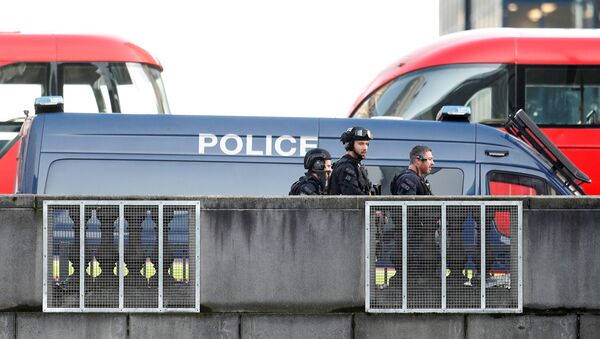In an interview with the Times, a former prisoner who was known to his former inmates under the pseudonym Jack, said Islamists had contacted him, offering him assistance in travelling to Syria. He shared a number of stories, recounting how on one occasion, one of his former inmates was beaten as punishment after he was accused of disrespecting Islam by drinking alcohol, with all the others sitting in judgment at a Sharia cell-block court.
Jack, earlier freed on licence, noted that those who had recruited him included a follower of the hate preacher Anjem Choudary and claimed that he had access to recordings of talks by the al-Qaeda recruiter Anwar al-Awlaki.
The prisoner detailed the way he started leading a new life, having “chosen to leave that one” after his release, sharing how he received spiritual help that made him a practising and peaceful Muslim.
Justice Secretary Robert Buckland referred to the account as a “very concerning” one, contending at the same time that over the past few years “a great deal of time, effort and investment has gone into bearing down on the malign effects of extremism behind bars”.
The issue came into the spotlight last month after 28-year-old Usman Khan, a convicted Category A terrorist freed on parole, went on a rampage at London Bridge, murdering two and injuring more before being killed by police.
According to Richard Walton, former head of Scotland Yard’s Counter Terrorism Command, and Ian Acheson, who had previously looked into jail extremism, reforms to solve the issue had stalled.
“The Ministry of Justice should now revisit the problem of prison radicalisation in light of the recent attack. A full, transparent review of prison radicalisation and the measures in place to address it is now needed,” Walton opined.
Along the same lines, Professor Acheson’s 2016 report described Islamist Jail extremism as a “growing problem” and outlined measures to counter it, irrespective of the resistance his initiatives had met with in the past.
Now, after the prisoner described his experience, Acheson ascertained that the interview had confirmed his fears that the prison and probation service “is still not capable of managing a serious threat to our national security”.
“I’m disappointed that many of the recommendations I made in 2016 to robustly respond to this threat do not seem to have been adopted. This implies a continuing serious failure of leadership and will to confront terrorism that I identified,” Acheson pointed out in dismay stressing that radicalisation continues to present “a significant challenge”.
Despite being deemed as a public threat, London Bridge knife attacker Usman Khan was freed far ahead of his scheduled release under strict conditions, and required to wear a GPS tag. This, however, didn’t prevent him from going on a rampage inside Fishmongers’ Hall, which at the time was hosting a rehab conference he had been permitted to attend. Two people were killed and six others injured in the attack, with the conference attendees and passers-by jumping in in order to push the knife out of the culprit’s hands.




